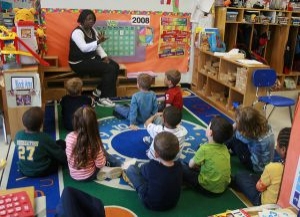In early childhood education, behaviour is never just “bad” it’s a message. Whether it’s a child struggling with transitions, sensory overload, or unmet emotional needs, the role of educators is to respond with curiosity, compassion, and consistency. But educators can’t do it alone. Behavioural support must be systemic, accessible, and grounded in both child development and educator well-being. Across Australia, a range of behavioural support pathways exist to help services respond to challenging behaviours while upholding inclusion, safety, and dignity for all.
Types of Behavioural Support Available
Inclusion Support Program (ISP)
- Funded by: Australian Government
- What it offers: Access to Inclusion Professionals who guide services in supporting children with additional needs, including behaviour strategies and funding applications.
State/Territory Early Intervention Services
- Examples: Child Development Services, Early Childhood Intervention teams
- Support includes: Behavioural assessments, strategy development, and multidisciplinary collaboration.
Allied Health Support
- Professionals involved: Psychologists, occupational therapists, speech pathologists
- How it works: Services may refer families or host visits where professionals model strategies and co-develop plans.
Professional Development & Training
- Expectations: Approved Providers must offer training in:
- Positive behaviour guidance
- Trauma-informed practice
- De-escalation techniques
- Goal: Build educator confidence and consistency.
Regulatory Guidance
- Mandated by: ACECQA and state regulators
- Requirements: Services must have behaviour guidance policies that:
- Prioritise child wellbeing
- Protect educator safety
- Prohibit punitive or exclusionary practices
Your Rights in Accessing Support
- Duty of care: Services must protect educators under Work Health and Safety laws.
- Escalation pathways:
- Request Inclusion Professionals or behavioural specialists
- If ignored, escalate to your state’s Regulatory Authority or SafeWork
- Documentation matters: Keep records of incidents and formal requests for support.
Behavioural Support Pathways by State/Territory
Queensland
- Early Childhood Guidance Program Pilot – Free support for all regulated services
- Autism Queensland PBG – Behaviour consultancy for educators
- Kameleon Group – NDIS-registered behavioural support and PD
New South Wales
- EarlyEd – Positive behaviour support specialists
- Aruma – Behaviour assessments and strategies
- Eureka Learning Centre – Therapy and support for children under 9
Victoria
- Victorian Government Guidance – Positive guidance mandated under law
- Child & Family Psychological Services – Tailored behavioural interventions
- EarlyEd – Team-based support also available in VIC
Western Australia
- WABSS – NDIS-registered early childhood behaviour support
- Behaviour Tonics – Training in 1-2-3 Magic and Emotion Coaching
- Kameleon Group – Telehealth and in-person services
South Australia
- Kudos Services – Early intervention and behaviour support
- Southern Early Childhood and Family Services – Multidisciplinary teams
- Healthy Mind Australia – Tailored behaviour plans
What Do Services Need To Provide To Access Support Services
To access behavioural support services, early childhood services in Australia typically need to provide documentation of the child’s needs, evidence of inclusive practice, and consent from families. They may also need to demonstrate that they’ve implemented initial strategies and require additional support.
Here’s a detailed breakdown of what services usually need to prepare:
1. Child-Specific Documentation
- Observations and learning stories showing behavioural patterns, triggers, and responses
- Developmental summaries aligned with EYLF outcomes
- Incident reports (if applicable) that detail frequency, intensity, and context of behaviours
- Individual Learning Plans (ILPs) or support plans already in place
2. Evidence of Inclusive Practice
- Strategies already trialed by educators (e.g., visual schedules, sensory tools, co-regulation techniques)
- Adjustments made to the environment or routine
- Collaboration with families and allied health professionals
- Reflections on what has or hasn’t worked
3. Formal Requests and Applications
- Inclusion Support Program (ISP):
- Complete a Request for Inclusion Support via the Inclusion Agency portal
- Provide documentation of the child’s additional needs
- Outline the impact on the child, peers, and educators
- NDIS-linked services or allied health referrals:
- May require a referral letter or service agreement
- Consent forms signed by families
4. Family Engagement and Consent
- Services must seek written consent from families before sharing information with external support providers
- Families may be asked to contribute insights or attend joint planning meetings
5. Staff Training and Policy Alignment
- Services should have a Behaviour Guidance Policy aligned with the National Quality Standard (NQS)
- Staff must be trained in positive behaviour support and trauma-informed practice
- Demonstrating a commitment to professional development strengthens support applications
6. When Applying for Funding or Additional Staff
- Services may need to show:
- Staffing ratios and rosters
- Impact on educator wellbeing and safety
- Need for shadow educators or specialist support
Every child deserves to be understood—not punished—for their behaviour. Every educator deserves to feel safe, supported, and equipped. And every service deserves access to the tools and professionals that make inclusion possible.
Further Reading
Educator Rights in Early Childhood Education When Children Are Violent
Descriptive Words For Children's Behaviour
Talking To Parents About Their Child's Behaviour Issues
Stages Of Behaviour
Behaviour Management Plans In Childcare
Supporting Children With Challenging Behaviour
Aggressive Behaviour And Violence In Children
Behaviourism Theory in Early Childhood Education







 Working as a childcare professional can be a challenge especially when dealing with behavioural problems which may arise. The techniques we use when dealing with
Working as a childcare professional can be a challenge especially when dealing with behavioural problems which may arise. The techniques we use when dealing with There are different types of behaviour that children can display and sometimes it can be hard to manage, especially if a child is having behavioural
There are different types of behaviour that children can display and sometimes it can be hard to manage, especially if a child is having behavioural As a parent, your behavioural expectations of your child can be higher than what is actually developmentally appropriate for your child's age.
As a parent, your behavioural expectations of your child can be higher than what is actually developmentally appropriate for your child's age.
 As Educators, there will be many instances where you will need to write about a child's behaviour. For a behaviour management plan, assessments, half-yearly or
As Educators, there will be many instances where you will need to write about a child's behaviour. For a behaviour management plan, assessments, half-yearly or As Educators when communicating with Parents (through verbal or non-verbal communication), there will be times where we need to discuss issues or concerns that may
As Educators when communicating with Parents (through verbal or non-verbal communication), there will be times where we need to discuss issues or concerns that may Challenging Behaviour is when a child does something that hurts themselves and/or other people.
Challenging Behaviour is when a child does something that hurts themselves and/or other people.
 As part of your child's development it is normal for your child to have anxiety and fears. A baby commonly shows a fearful sign to
As part of your child's development it is normal for your child to have anxiety and fears. A baby commonly shows a fearful sign to It's always difficult to bring up behavioural issues with parents, it can be nerve wrecking to tell a parent that their child misbehaves but that
It's always difficult to bring up behavioural issues with parents, it can be nerve wrecking to tell a parent that their child misbehaves but that All children deal with anger on a daily basis. Thinking about it as a child, there is a lot to be angry about. Elder people
All children deal with anger on a daily basis. Thinking about it as a child, there is a lot to be angry about. Elder people It is important to understand that your child behaviour problems could not just be from attention seeking. There are many factors to take into consideration
It is important to understand that your child behaviour problems could not just be from attention seeking. There are many factors to take into consideration


